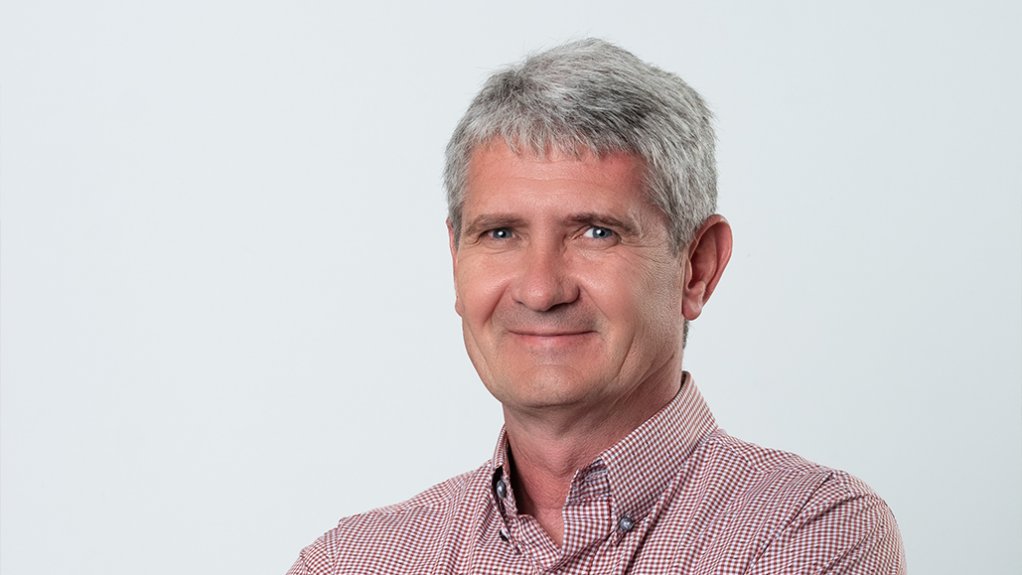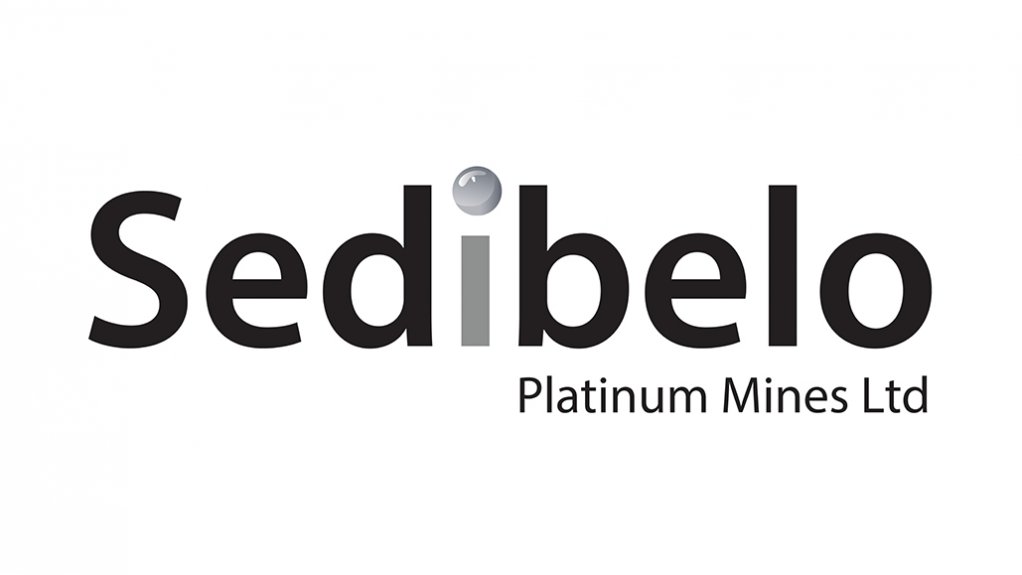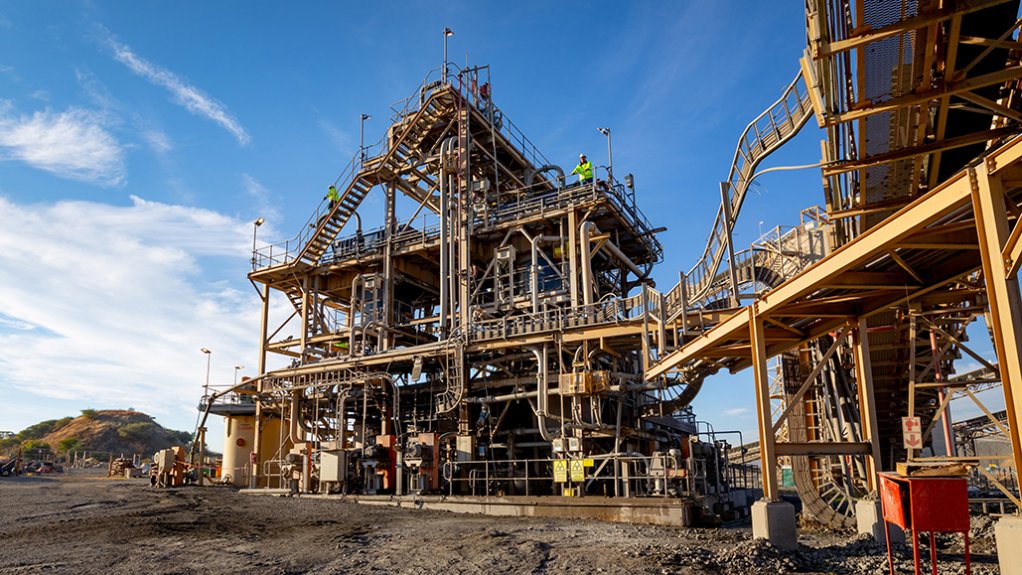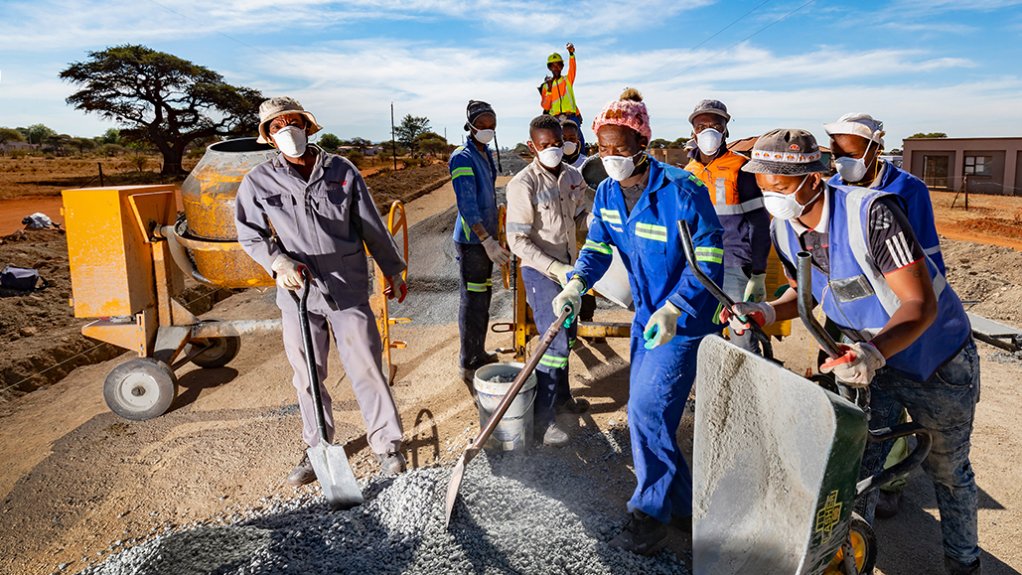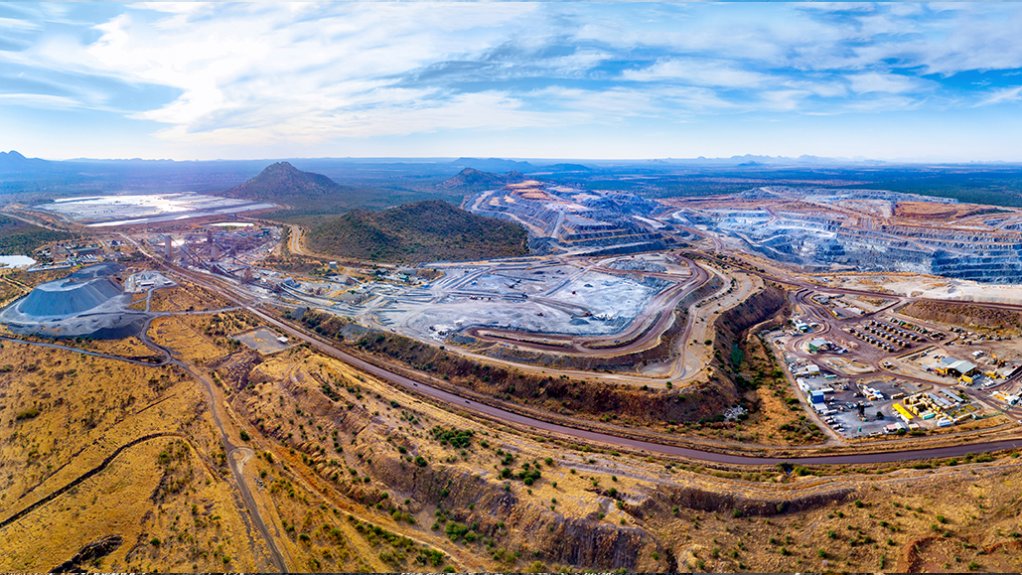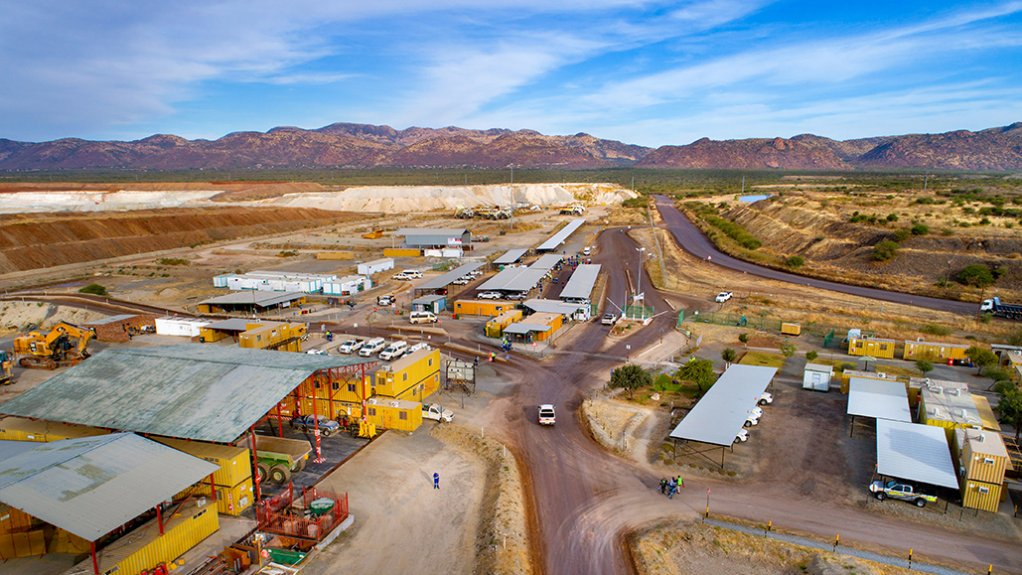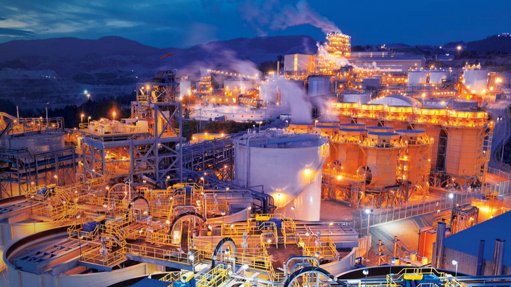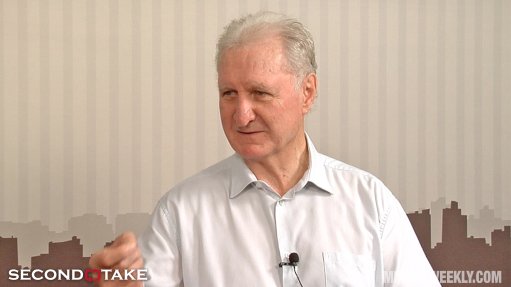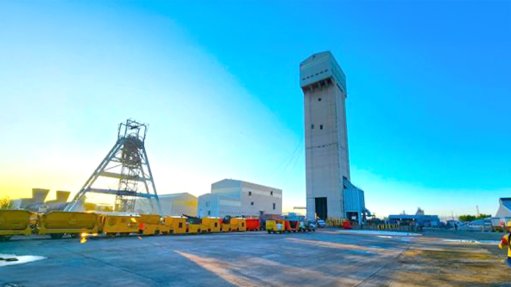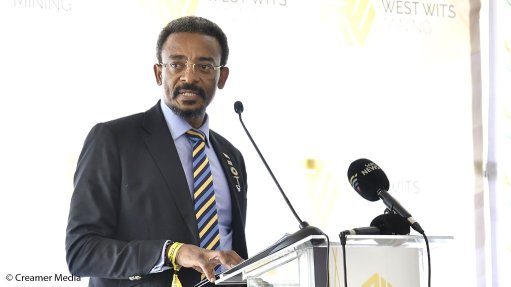Sedibelo set to transform green mining landscape with game-changing technology
Platinum group metals (PGMs) producer Sedibelo Platinum Mines is setting a high bar for green mining globally at its Pilanesberg Platinum Mines (PPM), in the North West, where it will soon start construction of its revolutionary Kell processing plant.
“When you look at the future and the impact PGMs will have going forward in terms of fuel cells and the hydrogen economy, for example, PGMs still have a long life and a real role to play. The difference Sedibelo brings to the table is the far greener and more efficient production of these PGMs compared with some of our counterparts in the industry,” says Sedibelo CEO Erich Clarke.
Mining is a major contributor to South Africa’s gross domestic product, but it is also a significant energy user and driver of the country’s carbon emissions. This is a worrying aspect as the world targets net-zero emissions by 2050 to mitigate climate change, placing pressure on the industry to decarbonise its operations at a time when South Africa seeks to rejuvenate its economy following the adverse effects of Covid-19-related lockdowns.
But while South Africa grapples with how to reduce the percentage of coal-fired power in its energy mix, Sedibelo is changing the mining landscape with the development of its Kell processing plant which, once operational, will use about 20% of the electricity consumed during conventional PGMs smelting.
Sedibelo holds 5.8% of South Africa’s PGM resources and the introduction of Kell at PPM will eliminate sulphur dioxide and reduce carbon dioxide (CO2) emissions from concentrate to final refined metals to 19% of the CO2 emissions associated with conventional smelting.
Globally, smelters comprise dirty, heat-intensive processes that require a substantial amount of energy and emit noxious gases into the atmosphere.
However, Kell, which will use standard equipment used in other metallurgical processes, will employ this process to produce refined PGMs at the mine site. This offers the mining industry a far greener solution that is “totally” contained and substantially reduces harmful gases directly and indirectly emitted into the atmosphere, explains Clarke.
While many mines place greater emphasis on how to power plants using renewable energy sources, such as solar and battery solutions, Sedibelo is focused on greening the technology used in the processing of its PGMs.
“Everyone is waiting for us to build the first Kell plant and once we have done so, the entire industry will be watching to see how well we fare,” states Clarke.
Typically, the ore mined at PPM is processed using an on-site Merensky and Upper Group Two (UG2) concentrator plant, with the capacity to process 315 000 t/m of PGM bearing ore. This concentrate is then transported to a smelter for beneficiation and refining.
Currently, PPM, which boasts 90-million ounces of contained platinum, palladium, rhodium and gold (4E PGM) resources, is just part of the value chain, states Sedibelo COO Casper Badenhorst.
“With the development of the Kell processing plant, the entire value chain, from mining to refined metal, will be under our control,” he emphasises.
Beneficiation is the big issue, said Sedibelo shareholder Pallinghurst managing partner and co-founder Arne Frandsen in an interview with Mining Weekly in September, emphasising that, “for hundreds of years, people have come to Africa to take the resources and basically add the value to them back home, somewhere else. Value adding was kept to a minimum”.
Promisingly, Kell enables concentrate to be processed into metals in one process, on one site and in less than two weeks.
Capital Gains
“This technology provides us with the ability to control the metal flow and that brings with it additional margin,” states Clarke.
The Kell process claims to lower capital expenditure to between 18% and 33% and operating cost to between 51% and 66% of conventional smelting.
“When you produce metal using toll smelting operations, you need to pay for transport and smelting charges, so many additional fees are accumulated before the metal is produced. With Kell, that will disappear, improving our bottom line,” elaborates Badenhorst.
Kell also releases working capital and shortens payment pipelines as it lowers locked-up ‘work in progress’ inventory by 90% and, for a mining company that is currently selling concentrate, the release of locked-up working capital can pay for more than half of a Kell plant.
Meanwhile, Clarke believes that in future, Sedibelo could possibly experience higher demand for the products it produces, owing to environment, social and governance factors becoming increasingly important to investors and consumers.
Therefore, the major buyers of PGMs are reviewing how PGMs are produced and their associated carbon footprint, as it will impact on their products’ green attributes. “But only time will tell,” says Clarke.
Energy Efficiency
Further, employing cost- and energy-efficient Kell technology, Sedibelo’s 110 000 t/y beneficiation plant will use 70% to 80% less energy than a traditional smelter of the same size while recovering up to 99% of the metals it refines.
Notably, a study is under way to identify suitable renewable energy sources to power the entire PPM operation, says Badenhorst, adding that this will most likely be a hybrid solution.
“The tests we are conducting at present, indicate that we could be completely independent of the national electricity grid should we include hydrogen-based power generation solutions as part of our operation.”
Sedibelo could also produce the platinum for the hydrogen fuel cell solution employed at PPM, he says.
In the initial stages of its operation, the Kell processing plant will be reliant on State-owned power utility Eskom; however, Clarke notes that there is a significant amount of tribal land located around the project which community members are keen to see developed into a solar farm.
“We are eager to power the processing plant using our own energy within the next five years. The Kell plant is being designed to tap into this green energy to reduce its carbon footprint further. It will then be a completely green process.”
Kell Plant Progress
In conjunction with its technology partner Lifezone, Sedibelo has completed the engineering design for its Kell processing plant, identified its location at PPM and will be “ready to push the button early next year” and start construction, says Badenhorst.
“We are clearing the ground as we speak, so we can start equipment sourcing and fabrication in the new year. We really are progressing well with this plant build.
“At present, we believe we are on track to deliver the project on schedule and within budget. Once we start the fabrication process it is an 18-month to two-year process. However, we will have a better understanding of whether we are on schedule once we break ground,” says Clarke, who expects first production by the first quarter of 2024.
Looking to produce platinum, palladium and rhodium, Sedibelo has yet to decide how far it should take the refining process.
“We may need to produce metals in a form that still needs further refining or we could produce metals of a quality that we can sell directly to the end-user. These decisions are ongoing as part of the build process.”
The operation of its Kell processing plant will create 300 semiskilled to skilled jobs, with Sedibelo aiming to source and train many of the employees from the surrounding area to the benefit of the community.
“Training will be key as highly skilled people will be needed. So, within two years of building, we need to identify the right people and upskill them to be part of this process,” adds Badenhorst.
PPM’s current workforce comprises 65% of local community members and Sedibelo aims to grow this percentage.
“When the majority of employees are from the community, it aids community connection to the mine,” advances Badenhorst.
Sedibelo shares an interest in Kell South Africa with the national development finance institution Industrial Development Corporation of South Africa, which owns 15.7% of Sedibelo, and developer of the Kell technology Keith Liddell, whose company Lifezone has the exclusive rights to exploit the patents and technology.
Triple Crown
Sedibelo has finalised the short list of EPCM contractors for its Triple Crown project at PPM, in the Pilanesberg, 207 km west of Johannesburg.
The company expects to break ground on schedule in the first quarter of 2022 following the announcement of the expansion in December last year.
The project, which is expected to deliver lower-cost product, involves expanding operations at PPM into contiguous deposits of Sedibelo Central, Magazynskraal and Kruidfontein – known as the Triple Crown properties. With an estimated resource base in excess of 60-million 4E PGM ounces, it is considered one of the world’s largest undeveloped PGM deposits.
The existing PPM concentrator plant has the capacity to be used to process the Triple Crown ore as well as ore from the mine’s open pits. With minimal reconfiguration, the Triple Crown UG2 and Merensky ore will be blended and processed through the existing Merensky plant, thereby reducing capital expenditure as well as lowering operating cost significantly.
Further, while the UG2 orebody has a high chrome content which toll smelters usually penalise mining companies for, the Kell process is “agnostic to chrome. “Unlike smelting, it is inert to the the Kell process conditions,” says Clarke.
“All of this bodes well for our complete value chain.”
Meanwhile, the EPCM contractor for the Triple Crown expansion should be announced in December this year.
Sedibelo uses an owner-contractor operation mining strategy, guided by the mine’s management and technical staff.
“While some EPCM contractors have proven they can do the job, they must have the correct safety credentials and be able to integrate into the team we already have on the ground and uphold PPMs values,” says Badenhorst when discussing key considerations for the EPCMs appointment.
PPM has an amazing safety record, which is four times better than the industry benchmark, and has not had a fatality exceeding 10 years.
“It is important that we choose a contractor that maintains this safety record, especially as underground mining is more dangerous than our open pit operations. Therefore, we really need to be comfortable that the EPCM has the same safety ethos as PPM,” stresses Clarke.
The first ounces from the Triple Crown expansion project are expected in 2025, with the predominantly shallow deposits enabling safe, sustainable mining activities for potentially more than 60 years.
The project is expected to reach steady-state production in 2031 and, in the meantime, PPM is undertaking a new cut adjacent to its existing open pit to ensure a steady flow of income.
This new open pit is expected to keep the mine in business well up until Triple Crown reaches steady-state production, which will increase jobs exponentially.
“We anticipate creating an extra 3 000 jobs for Triple Crown. Our projects bring a lot of value not only to the company but also to the surrounding community. Triple Crown comes with a long life expectancy and you can imagine how this will unfold economically and benefit everybody,” advances Clarke.
Going Digital
Sedibelo is also going on a digital journey to boost its operational efficiency. Besides a greener energy supply, the company is also evaluating how it can make the mining of the Triple Crown resource at PPM a greener operation. For example, instead of conventional conveyor belts, the underground mine design includes Doppelmayr conveyors, which require significantly less energy to operate, states Badenhorst.
“We have the unique opportunity to introduce new systems and technologies on the back of the Triple Crown and Kell projects. Consequently, we are ahead of the pack as we don’t have the burden of having to retrofit legacy systems.
“We can start with something that is fit for purpose and will be integrated into our processes. Our open pit operation has not been that reliant on digital solutions, but our new projects present the opportunity to digitise in a far more efficient manner.”
PPM’s employees will also be reskilled as part of the mine’s digital optimisation.
“We have no intention of retrenching workers. We have always run a tight operation and, for this reason, we can reskill people to undertake a different function in the company,” says Badenhorst.
It is a balance between reskilling the existing workforce and migrating them underground and creating jobs that are more skilled rather than bloating the workforce because of a lack of digital transformation or technology, explains Clarke.
“We intend to balance our digital transition while still ensuring a safe and efficient operation as we become a green PGMs producer for the future,” concludes Clarke.
Article Enquiry
Email Article
Save Article
Feedback
To advertise email advertising@creamermedia.co.za or click here
Announcements
What's On
Subscribe to improve your user experience...
Option 1 (equivalent of R125 a month):
Receive a weekly copy of Creamer Media's Engineering News & Mining Weekly magazine
(print copy for those in South Africa and e-magazine for those outside of South Africa)
Receive daily email newsletters
Access to full search results
Access archive of magazine back copies
Access to Projects in Progress
Access to ONE Research Report of your choice in PDF format
Option 2 (equivalent of R375 a month):
All benefits from Option 1
PLUS
Access to Creamer Media's Research Channel Africa for ALL Research Reports, in PDF format, on various industrial and mining sectors
including Electricity; Water; Energy Transition; Hydrogen; Roads, Rail and Ports; Coal; Gold; Platinum; Battery Metals; etc.
Already a subscriber?
Forgotten your password?
Receive weekly copy of Creamer Media's Engineering News & Mining Weekly magazine (print copy for those in South Africa and e-magazine for those outside of South Africa)
➕
Recieve daily email newsletters
➕
Access to full search results
➕
Access archive of magazine back copies
➕
Access to Projects in Progress
➕
Access to ONE Research Report of your choice in PDF format
RESEARCH CHANNEL AFRICA
R4500 (equivalent of R375 a month)
SUBSCRIBEAll benefits from Option 1
➕
Access to Creamer Media's Research Channel Africa for ALL Research Reports on various industrial and mining sectors, in PDF format, including on:
Electricity
➕
Water
➕
Energy Transition
➕
Hydrogen
➕
Roads, Rail and Ports
➕
Coal
➕
Gold
➕
Platinum
➕
Battery Metals
➕
etc.
Receive all benefits from Option 1 or Option 2 delivered to numerous people at your company
➕
Multiple User names and Passwords for simultaneous log-ins
➕
Intranet integration access to all in your organisation



